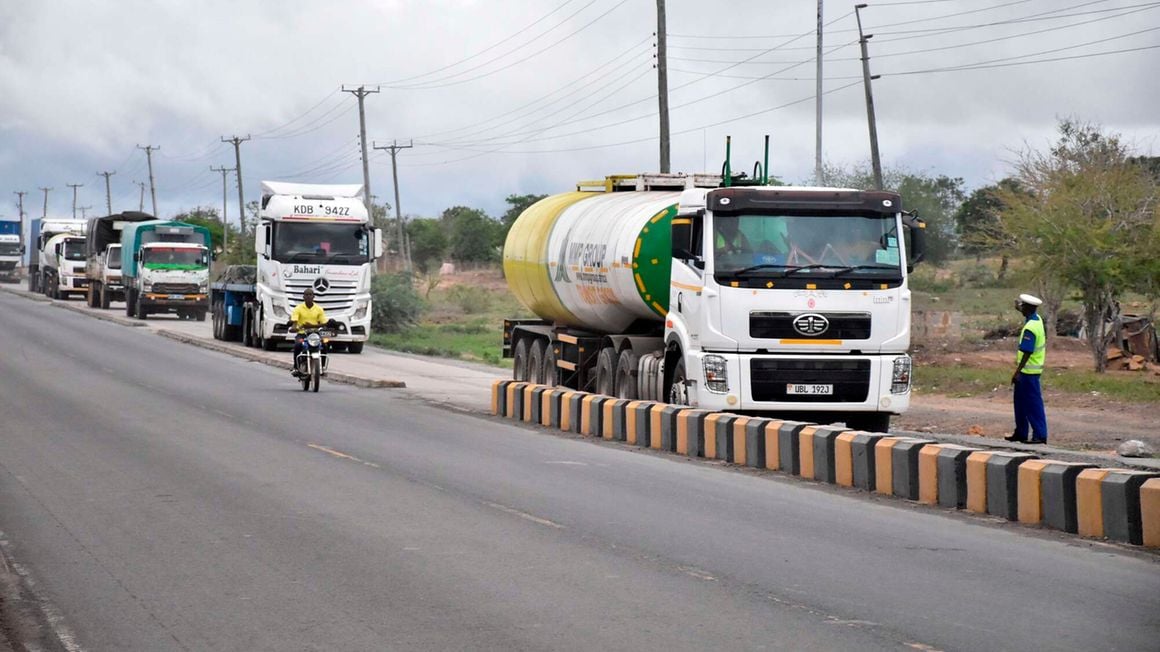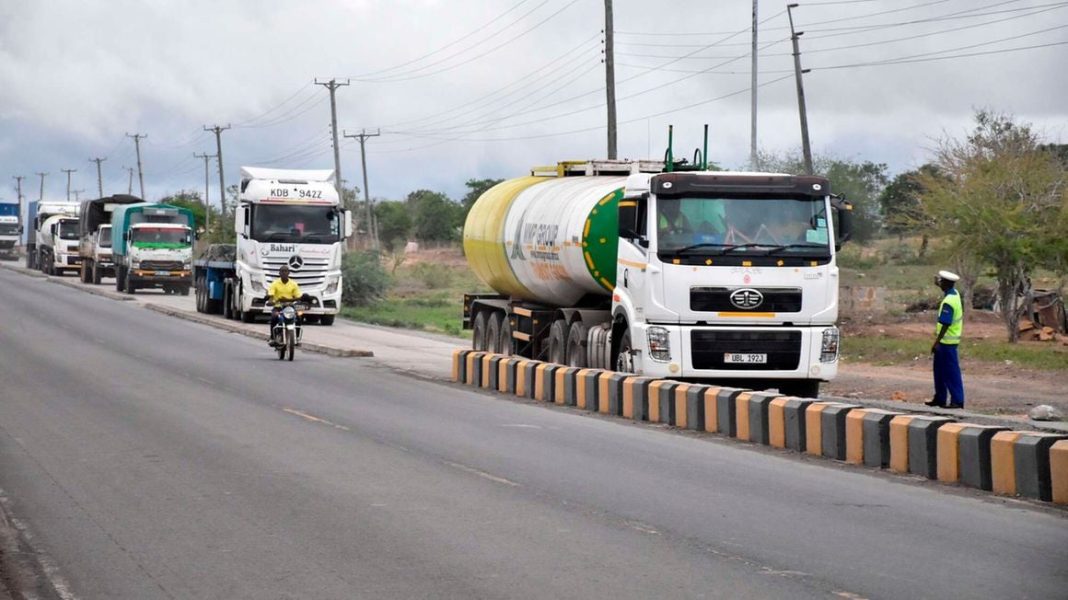Kenya’s tax proposals’ impact on trade within EAC,Transporters within the East African Community have expressed concern over Kenya’s proposal to raise taxes on trucks and trailers as part of the country’s Finance Bill 2023.
This proposal has caused apprehension among transporters as partner states of the East African Community gathered to discuss their budgets.
The bill suggests amending the advance tax applicable to passenger and commercial vehicles, excluding agricultural tractors and trailers. It recommends an increase in the advance tax to Ksh3,000 ($21.91) per tonne of load capacity per year or Ksh5,000 ($36.52) per year for trucks, starting from January 2024.
The heightened advance tax for commercial vehicles implies an increased cost of conducting business. To address these concerns, Kenya’s EAC Cabinet Secretary, Rebecca Miano, has assured that the Finance ministers from all EAC partner states will carefully examine the bill.
Miano advised everyone to exercise patience, acknowledging that budget preparations are underway in neighboring countries. The EAC Finance ministers are scheduled to convene on Friday, where the potential impact of these taxes on the entire region will be discussed.
High fuel costs
Kenyans and East Africans who travel through Kenya will also have to contend with higher costs of fuel as the draft law proposes a raise of VAT from 8.0 percent to 16 percent.
“We would like to express strong opposition to the increase in advance tax on trucks and trailers,” said Newton Wang’oo, chairman of the Kenya Transport Association.
“As much as advance tax is treated as a tax credit, the proposed increase in advance tax would have a huge adverse impact on the cash flows of transport companies, which are already struggling due to the high cost of fuel and maintenance.”
The transporters – whose trucks ply the Northern Corridor to neighbouring states Uganda, Rwanda, the Democratic Republic of Congo and South Sudan – have proposed the scrapping of the advance tax arguing it won’t deny government revenue.
“Transport companies pay instalment taxes just like other taxpayers in other sectors of the economy,” said Wang’oo.
“With Kenya Revenue Authority embracing technology and advanced systems, we propose that advance tax should actually be abolished as there are many other ways to ensure all transporters are in the tax net and, therefore, the government loses no revenue by removing advance tax,” he added.
For saloons, station wagons, minibuses, buses and coaches, the new advance tax rate is Ksh100 per passenger capacity per month or Ksh5,000 per year, whichever is higher.
But it is the increase in fuel that is going to stretch to the limit to the cost of living in Kenya.
Impact on economy
Ken Gichinga from Mentoria Economics expressed concern about the increase in VAT on fuel from eight to 16 percent, stating that it will have a significant impact on the economy. He believes that fuel plays a crucial role in driving the economy throughout the East African Community (EAC) region, affecting transportation, food prices, and various industries. Gichinga hoped that the fuel VAT would remain unchanged, considering the current state of the economy. However, he believes that the decision to raise it is influenced by the IMF, which contradicts the “Bottom Up-Hustler” narrative. He predicts that this change will negatively affect the people and make their situation worse.
Furthermore, Kenyans will also face the consequences of a mandatory contribution to the National Housing Development Fund. The fund proposes a three percent deduction from employees’ salaries, which will go towards the affordable housing program. Employers are expected to match their employees’ contributions.
Coupled with the proposed changes in NHIF (National Hospital Insurance Fund) and recent adjustments in national pension contributions, these measures will severely impact employees. This comes at a time when many individuals are already struggling with the high cost of living.
Gichinga expresses concern that these additional deductions from civil servants will harm the overall demand in the economy. He believes that when the economy is already weak, taking more money from people will lead to an economic slowdown.
Turnover tax
The proposed Finance Bill suggests lowering the criteria for resident individuals to qualify for turnover tax. This tax would apply to those whose business turnover exceeds Ksh500,000 ($3652.30) but does not surpass Ksh15 million ($109,569).
Additionally, the Finance Bill proposes an increase in the turnover tax rate from one percent to three percent. This aligns with the Kenyan government’s aim to tax the informal sector. By implementing this change, a greater number of micro enterprises would fall within the tax bracket, as the previous threshold of Ksh1 million ($7,304) excluded them. However, this increase may be seen as punitive and could discourage participation in the informal sector.
CS Miano stated that tax-related matters will be discussed during a meeting of the Tax Policy and Tax Administration Sub-Committee of the East African Community (EAC) in June.




